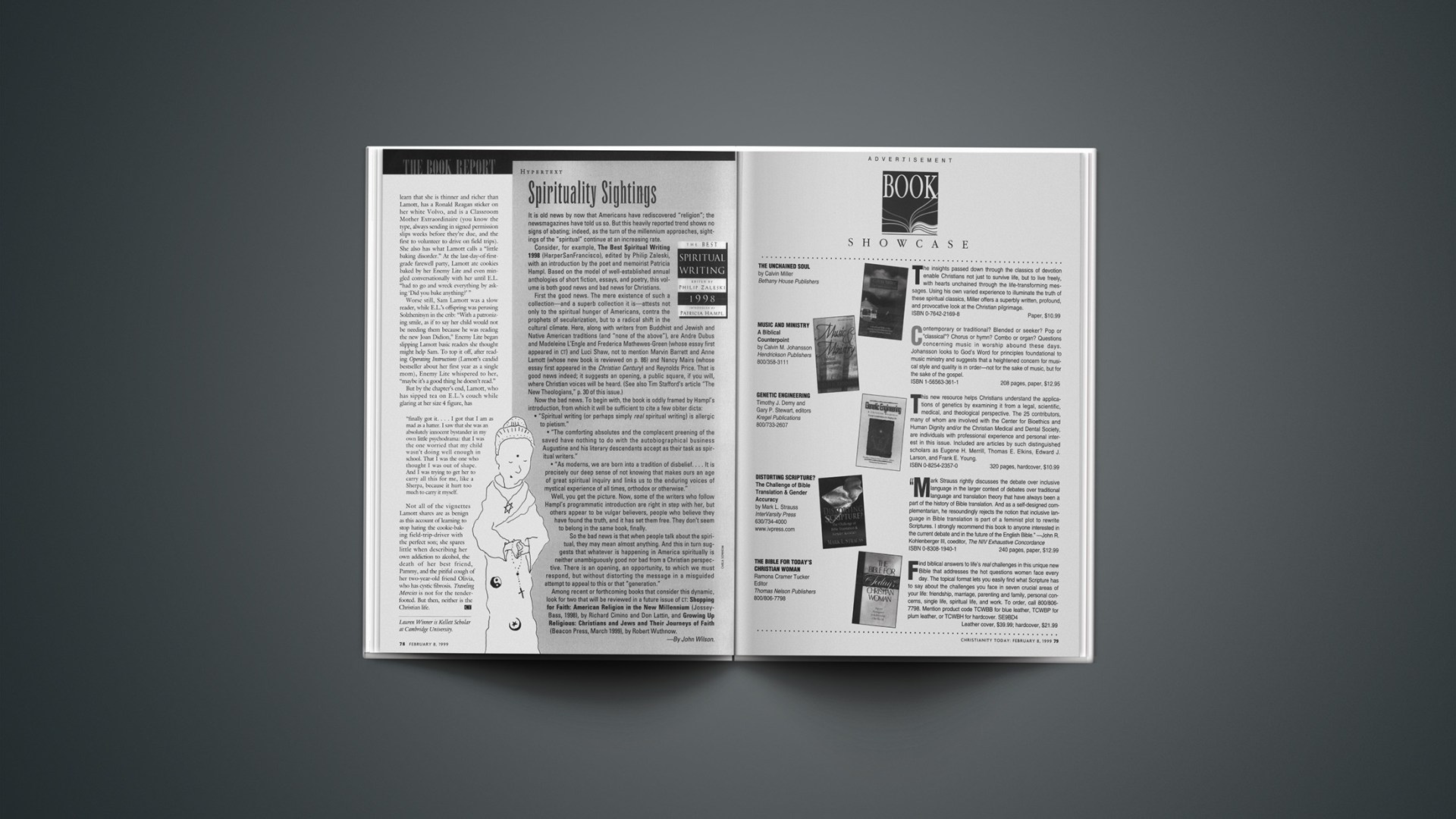It is old news by how that Americans have rediscovered “religion”; the newsmagazines have told us so. But this heavily reported trend shows no signs of abating; indeed, as the turn of the millennium approaches, sighting of the “spiritual” continue at an increasing rate.
Consider, for example, The Best Spiritual Writing 1998 (HarperSanFrancisco), edited by Philip Zaleski, with an introduction by the poet and memoirist Patricia Hampl. Based on the model of well-established annual anthologies of short fiction, essays, and poetry, this volume is both good news and bad news for Christians.
First the good news. The mere existence of such a collection-and a superb collection it is-attests not only to the spiritual hunger of Americans, contra the prophets of secularization, but to a radical shift in the cultural climate. Here, along with writers from Buddhist and Jewish and Native American traditions (and “none of the above”), are Andre Dubus and Madeleine L’Engle and Frederica Mathewes-Green (whose essay first appeared in CT) and Luci Shaw, not to mention Marvin Barrett and Anne Lamott (whose new book is reviewed on p. 86) and Nancy Mairs (whose essay first appeared in the Christian Century) and Reynolds Price. That is good news indeed; it suggests an opening, a public square, if you will, where Christian voices will be heard. (See also Tim Stafford’s article “The New Theologians,” p. 30 of this issue.)
Now the bad news. To begin with, the book is oddly framed by Hampl’s introduction, from which it will be sufficient to cite a few obiter dicta:
* “Spiritual writing (or perhaps simply real spiritual writing) is allergic to pietism.”
* “The comforting absolutes and the complacent preening of the saved have nothing to do with the autobiographical business Augustine and his literary descendants accept as their task as spiritual writers.”
* “As moderns, we are born into a tradition of disbelief…. It is precisely our deep sense of not knowing that makes ours an age of great spiritual inquiry and links us to the enduring voices of mystical experience of all times, orthodox or otherwise.”
Well, you get the picture. Now, some of the writers who follow Hampl’s programmatic introduction are right in step with her, but others appear to be vulgar believers, people who believe they have found the truth, and it has set them free. They don’t seem to belong to the same book, finally.
So the bad news is that when people talk about the spiritual, they may mean almost anything. And this in turn suggests that whatever is happening in America spiritually is neither unambiguously good nor bad from a Christian perspective. There is an opening, an opportunity, to which we must respond, but without distorting the message in a misguided attempt to appeal to this or that “generation.”
Among recent or forthcoming books that consider this dynamic, look for two that will be reviewed in a future issue of CT: Shopping for Faith: American Religion in the New Millennium (Jossey-Bass, 1998), by Richard Cimino and Don Lattin, and Growing Up Religious: Christians and Jews and Their Journeys of Faith (Beacon Press, March 1999), by Robert Wuthnow.










